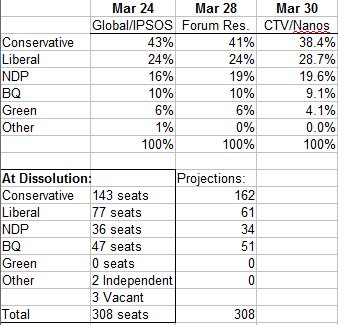Today is budget day, when federal Finance Minister Jim Flaherty will be introducing the Conservative budget for 2011. Unless something has suddenly changed in the government’s philosophy, don’t expect anything daring:
First and foremost, the budget should contain a plan for reducing federal spending in real terms over the next four or five years. Mr. Flaherty’s 2010 budget outlined how the federal government intended to restore balance to the federal books by 2015 by holding the line on spending increases to just over 1% a year while praying for a return to robust annual revenue increases. In fact, merely planning to hold the line on spending is never going to be enough. For one thing, the Conservatives have never proven themselves capable of pulling it off. Despite coming to power in 2006 on a message of fiscal restraint, the Tories raised federal program spending by an average of 6% in each of their first three budgets before the worldwide finance crisis of 2008. Since then, they have added $100-billion to the national debt, in large part thanks to stimulus spending of dubious worth.
According to the Canadian Taxpayers Federation, as of last Friday, Canada’s debt stood at nearly $563-billion. This means the debt repayments made over the 11 years before the recession began have been wiped out, and that the federal treasury is back to where it was before the Liberals’ then-finance minister Paul Martin brought down his austerity budget in 1995.
Since the Tories took power five years ago, program spending has expanded by nearly 40% and the federal civil service has grown by nearly 20%. We’re sorry, but we just don’t trust a government with a track record like the Tories’ to be able to regain budget balance simply by holding the line on new spending.
They can promise all sorts of things, but what they seem best at doing is pretending not to be “conservative” at all.
The government may fall, as the opposition are calling for even higher spending on “universities, home care, daycare, unemployment, seniors and Quebec”. This may work to the Conservatives’ advantage as they’re (temporarily) riding high in the opinion polls, so they might be able to win a majority if an election is forced on them over this budget. Of course, the opposition can read the polls too, so they may not be as eager to throw Stephen Harper an opportunity to win an easy victory.
Update: Well, the budget was tabled in the House, the opposition parties all rejected it “as it stands”, and the prime minister has stated they will not accept any amendments. For Thursday’s performance in the Ottawa Little Theatre, the budget will get first reading, which means the first opportunity for the government to be defeated . . . which means a May general election.




